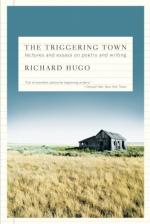
|
| Name: _________________________ | Period: ___________________ |
This test consists of 15 multiple choice questions and 5 short answer questions.
Multiple Choice Questions
1. What is the name of the only celebrity that comes to visit Hugo's squadron during the war?
(a) Joe Lewis.
(b) Hope Daniels.
(c) Jerry Lewis.
(d) Bob Hope.
2. What city does Hugo visit again in April, 1964?
(a) Munich.
(b) Milan.
(c) Cerignola.
(d) Leicester..
3. Hugo's fear when he is bombing makes it hard concentration difficult and he didn't trust _____.
(a) The strategy.
(b) The equipment.
(c) His captain.
(d) His eyesight.
4. Hugo's squadron is assigned to fly gasoline to a British Spitfire base in _____.
(a) Cambria.
(b) Lyon.
(c) Paris.
(d) Nice.
5. Which profession does Hugo believe should be able to retire in twenty years with a full pension like policemen, firemen, and service personnel?
(a) Teachers.
(b) Bankers.
(c) Poets.
(d) Fiction writers.
6. Which famous poet does Hugo say embodies a self superior to the self during the writing of a poem?
(a) Hardy.
(b) Roethke.
(c) Valery.
(d) Ginsberg.
7. Hugo states that formal verse can help a young poet locate things to say, and can also _____ him to say things he wouldn't say.
(a) Encourage.
(b) Forbid.
(c) Obligate.
(d) Discourage.
8. What is the name of the supply officer that doesn't supply Hugo's squadron with enough blankets?
(a) Captain Garrity.
(b) Captain Simmons.
(c) Captain Shanks.
(d) Captain Sommers.
9. Where is Captain Joel O. Moe from?
(a) West Virginia.
(b) Maryland.
(c) North Carolina.
(d) North Dakota.
10. Hugo says to hope hard to always fall short of _____.
(a) Success.
(b) Popularity.
(c) Mastery.
(d) Failure.
11. Hugo feels that true integrity is often willfully equated with _____.
(a) Sacrifice.
(b) Dullness.
(c) Spite.
(d) Quietude.
12. Whose coarse teasing and ridicule does Hugo say the poet must endure to be his beautiful self?
(a) Philistine sailors'.
(b) Uneducated fools'.
(c) Dynastic youth's.
(d) The lower self's.
13. What is the name of the bush that grows wild in the Pacific Northwest that Hugo uses as a local noun?
(a) Salmonberry.
(b) Salal.
(c) Butterfly.
(d) Royal purple.
14. Hugo prefers the _____ tone he employs to a lot of qualifiers when giving poets rules to write by.
(a) Dogmatic.
(b) Axiomatic.
(c) Pedagogic.
(d) Contemplative.
15. What does Hugo call the tearing down of buildings, the building of new housing, etc., as being one problem for modern poets?
(a) Wholesale changes.
(b) Rapid dehumanization.
(c) Class deterioration.
(d) Vapid consumerism.
Short Answer Questions
1. Hugo is distrustful of Eliot and Roethke because late in their careers the announced that they were _____.
2. What is the term Hugo uses for an imperfect or partial rhyme?
3. Hugo feels that there is a tendency for literary professors to establish and maintain _____ over their students.
4. Who is the creative writing teacher credited for teaching Eliot, Williams, Hemingway, and Yeats?
5. Whose "albatross" does Hugo mention when speaking of the poetry student's ability to fly?
|
This section contains 429 words (approx. 2 pages at 300 words per page) |

|




